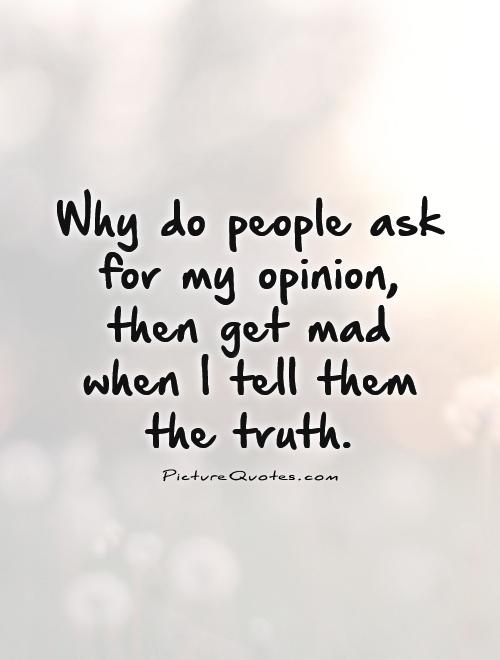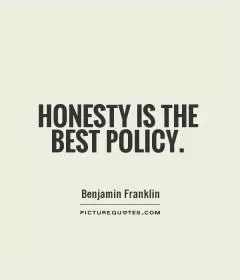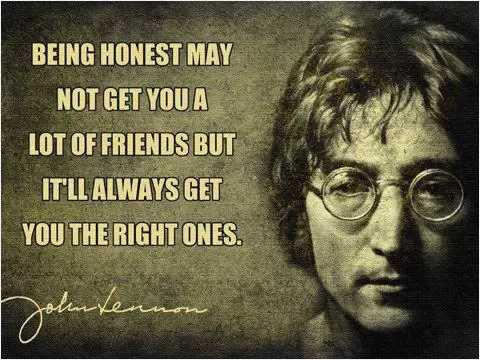Why do people ask for my opinion, then get mad when I tell them the truth

Why do people ask for my opinion, then get mad when I tell them the truth
Opinions are a funny thing. They are personal, subjective, and often deeply ingrained in our beliefs and values. When someone asks for your opinion, they are essentially asking for your perspective, your thoughts, and your honest assessment of a situation or topic. However, what many people fail to realize is that not all opinions are created equal, and not all opinions are going to be well-received.When someone asks for your opinion, they are essentially opening themselves up to criticism, feedback, and potentially even disagreement. They are seeking an outside perspective, a fresh set of eyes, and a different point of view. However, when the opinion they receive is not what they were expecting or hoping for, it can lead to frustration, anger, and even hurt feelings.
One of the main reasons why people may get mad when you tell them the truth is because they were not prepared for it. They may have been seeking validation, reassurance, or agreement, and when they receive a different opinion, it can be jarring and upsetting. People often have a tendency to surround themselves with like-minded individuals who share their beliefs and values, so when they encounter someone who has a differing opinion, it can be a shock to the system.
Another reason why people may react negatively to your opinion is because they may feel attacked or criticized. Even if you are simply sharing your thoughts in a constructive and respectful manner, some individuals may interpret your opinion as a personal attack on them or their beliefs. This can lead to defensiveness, anger, and a breakdown in communication.
It is important to remember that everyone is entitled to their own opinion, and just because someone may not agree with you or appreciate your perspective, it does not diminish the value of your opinion. It is important to approach conversations with an open mind, a willingness to listen, and a respect for differing viewpoints. By fostering a culture of open dialogue and respectful communication, we can create a more inclusive and understanding society where opinions are valued and appreciated, even if they may not always align with our own.












 Friendship Quotes
Friendship Quotes Love Quotes
Love Quotes Life Quotes
Life Quotes Funny Quotes
Funny Quotes Motivational Quotes
Motivational Quotes Inspirational Quotes
Inspirational Quotes